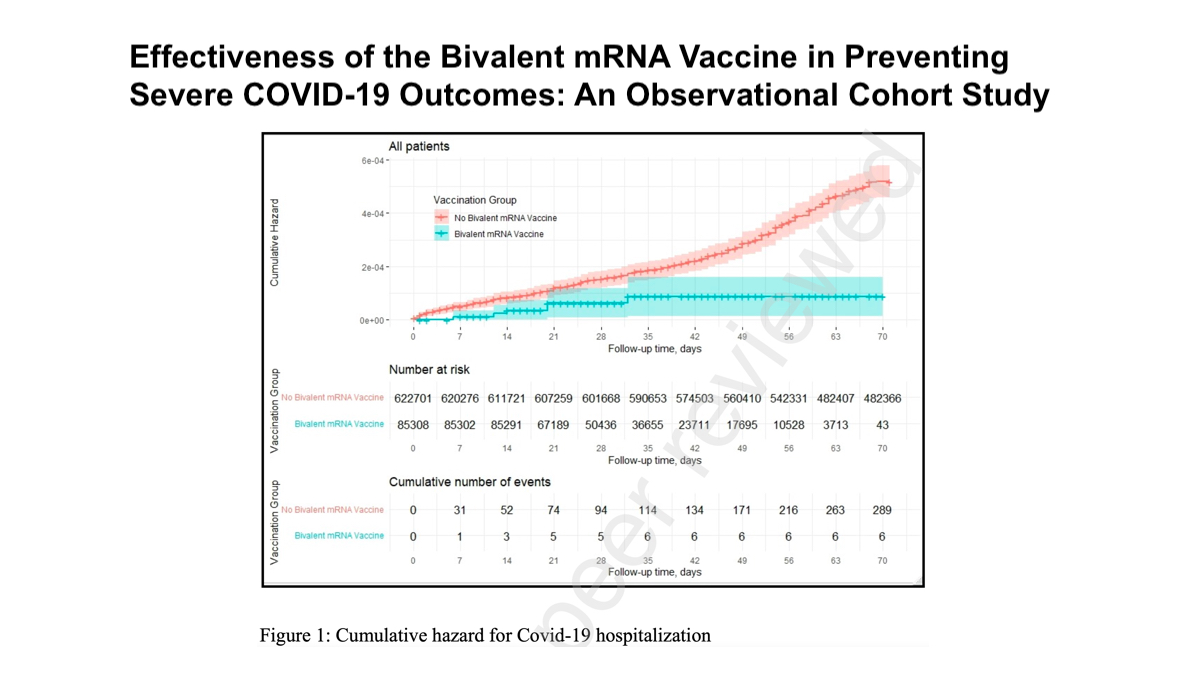GROUND TRUTHS by ERIC TOPOL. The bivalent vaccine booster outperforms.
A review of the cumulative body of evidence.
You may recall that I was a skeptic about the bivalent BA.5 vaccine when the FDA gave it the OK to roll out in September without any human data. At the very least, I had hoped there would be lab studies to confirm a strong immune response to this variant, and that it was superior to the original (monovalent) booster that was directed to the ancestral (Wuhan) strain. But we now have extensive data that is quite encouraging—better and broader than expected— that I’m going to briefly review here.
- Lab Studies
- The new Israeli study [Effectiveness of the Bivalent mRNA Vaccine in Preventing Severe COVID-19 Outcomes: An Observational Cohort Study]
- The CDC report
- CDC Results Through November 2022, the BQ.1.1 wave
- The Bivalent Vaccine Detractors and Naysayers
The Bottom Line
Bivalent boosters work well to prevent severe Covid, as manifest by reduction of hospitalizations and deaths. They are not a panacea, by any means—their efficacy against infections is limited and of short duration, which has been the case for shots since the Omicron variant came along in late 2021. The spike protein of the BA.5 bivalent more closely resembles XBB.1.5 than the Wuhan ancestral spike. The lab studies with live virus assays are strongly supportive. The clinical data are unequivocal. While it would be far better to have a “universal” pan-β-coronavirus vaccine that worked against all SARS-CoV-2 variants, and nasal vaccines to help block infections, the bivalent BA.5 booster has helped to bridge the big antigenic distance gap from the Wuhan strain to current Omicron subvariants. We’re lucky in the United States to have a big supply and it’s frankly disappointing to see the divisiveness, cherry picking of data, and detractors that defy the body of evidence that has now accumulated. The bivalent booster impact of broadening our immune response has exceeded expectations.

